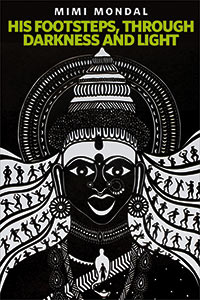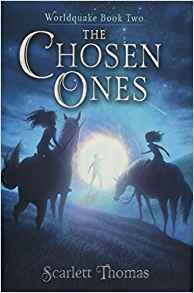Wole Talabi Reviews More Perfect by Temi Oh
 More Perfect, Temi Oh (Simon and Schuster UK 978-1471171284, £16.99, 592pp, hc) May 2023. (Saga Press 978-1-98214-283-4, $19.99, 592pp, tp). August 2023.
More Perfect, Temi Oh (Simon and Schuster UK 978-1471171284, £16.99, 592pp, hc) May 2023. (Saga Press 978-1-98214-283-4, $19.99, 592pp, tp). August 2023.
More Perfect is described as ‘‘a reimagining of the Greek myth of Eurydice and Orpheus.’’ This is true, given its plot, structure, numerous references, and the name of one of the main protagonists (Orpheus). I think it also references the Yoruba legend of Queen Moremi, who allowed herself to be captured by the enemy to discover their secrets and help her husband and her people win a war at great personal cost. It makes sense then, that the other main protagonist is named Moremi (replacing Eurydice) and that the roles of the two central characters from the Greek myth are somewhat reversed, since Orpheus is the one who descends into a kind of technological ‘‘hell’’ and Moremi is the one unable to resist looking back, etc. It has also been described as ‘‘The Circle meets Inception,’’ even though I also picked up a Strange Days and Minority Report vibe. But while observations of influences and comparisons are interesting, More Perfect is much more than just a reimagining of myths and legends, or a pastiche of previous cyberpunk cinema. Temi Oh’s second novel has a great premise and is full of big ideas about connection and consciousness.
Set in a near-future London where direct-neural implants called ‘‘Pulses’’ allow people to access the web directly as augmented reality, Oh imagines a world with more connection than ever before. Pulses also give companies and governments access to more data than ever – directly from people’s minds. Habits, experiences, emotions, memories, even dreams, all are accessible and can be influenced. This technology holds potential. But of course, not everyone believes that potential is good. Some believe dystopia is imminent, if not already present. That debate forms the central tension of the story.
Our two protagonists are introduced from two opposite sides of the Pulse argument, in alternating character points of view. Moremi, a British-Nigerian girl who lives in the city and is eager to get the Pulse due to peer pressure, despite some hesitation from her family, and Orpheus, a biracial boy whose father has raised him in low-tech isolation. An unfortunate but understandable teenage yearning breaks his isolation and violently orphans Orpheus, flushing him out of his cocoon into a London saturated with Pulse-enabled technology. He is forcibly connected and eventually learns to use Pulses to construct and manipulate dreams, eventually becoming an employee for the company that makes them. Moremi, now a young woman who also lost her mother in a terrorist incident that she barely survived herself, seeks Pulse-enabled dream therapy for her depression following this trauma by changing the memories that she believes are holding her back. The therapy allows her to experience artificial dreams of ‘‘a more perfect world.’’ A dream world of the kind that Orpheus now constructs and is growing increasingly addicted to. It is here, at this point, that their lives finally intersect and begin to intertwine.
The Pulse debates are also mirrored in what is left of Moremi’s family. Her older sister, Halima, fully adopts the Pulse and uses it to settle into her life like majority of people, while her younger sister, Zeeba, joins a group called the Revelators that advocate for a more analog lifestyle and resist the efforts of the government and the company pushing for total adoption of the Pulse. The government says its necessary for complete security while the company is pushing for a technological singularity that is not rooted in artificial intelligence, but instead one that uses the Pulse as a foundation to network human minds. A more perfect union of humanity, if you will. Set against this backdrop, Moremi and Orpheus fall in love, get married, and try to live their lives together.
This is where Temi Oh’s prose comes to life most powerfully – in the depiction of their relationship, their flawed personalities, and the legacies of their parents on them. It’s rendered in beautiful sentences that highlight a sort of young adult yearning without being cloying or overwrought. I thoroughly enjoyed the scenes with Moremi and Orpheus, these two young people in love. Judging from this and her previous novel Do You Dream of Terra-Two?, this is clearly a strength of Temi Oh’s – the ability to write young people in adult situations with emotional complexity and believability.
Orpheus and Moremi’s happiness is interrupted by the long-laid plans of others– the inventors of the Pulse, their parents, Revelators, the British government, and the events swirling around them. These parties all have plans that force the couple apart just as it seems they are settling into each other. The debate for and against total adoption of the Pulse leads to a heated national referendum. Orpheus is arrested following a terrorist attack, and Moremi is left unmoored, sliding back into her trauma. More Perfect is a long novel, split into three parts, and this middle part of the novel is perhaps its slowest – I suspect the book could have done without the Brexit-style vote, which really doesn’t change much in the end, but I understand why it’s there and I suspect many British readers will find something compelling in that section.
Things pick up again with an exciting and spectacularly tense rescue sequence, a brief (but also tense) period of hiding, a journey back to Orpheus’s childhood home, and a series of revelations that briskly drive the novel toward its tragic end, where Moremi allows herself to be ‘‘captured’’ by the strange world of dreams in order to try to save Orpheus from a terrible fate.
The part of the novel I most enjoyed was its extrapolation of the potential of direct brain interfaces to keep us always plugged in, always connected to both technology and each other and thus truly change the nature of consciousness, of what it means to be human. Temi Oh uses these ideas to deftly criticize our modern internet-and-technology obsession without falling into preachiness. She dwells enough on both the both advantages and disadvantages of the extrapolated technology for readers to really consider them. While we largely focus on Orpheus and Moremi, the cast of characters is diverse in every sense, with a spectrum of just-fleshed-out enough characters from every kind of background popping in an out of the main narrative, adding texture and authenticity drawn from and recognizable from modern-day London and the greater UK, which I was quite pleased to recognize. The world of dreams is wonderfully described and while initially it seems odd, eventually plays a major role in the story.
Like every good myth, legend, fable (and often their reimagining) not everything in More Perfect is neatly resolved. But the core story, a beautifully written tale of two people whose love is caught in a battle for the minds of humankind is moving, powerful, and deeply human.
Wole Talabi is an engineer, writer, and editor from Nigeria. He’s hopped around the planet quite a bit but right now, he lives in Malaysia. His stories have appeared in Asimov’s, Lightspeed, F&SF, Clarkesworld and several other places. He has edited three anthologies and been a finalist for several awards including the Caine Prize, the Locus Award, and the Nommo Award. His work has also been translated into Spanish, Norwegian, Chinese, Italian, Bengali, and French. His collection Incomplete Solutions (2019), is published by Luna Press and his debut Novel Shigidi, will be published by DAW books in fall, 2023.
This review and more like it in the July 2023 issue of Locus.
 While you are here, please take a moment to support Locus with a one-time or recurring donation. We rely on reader donations to keep the magazine and site going, and would like to keep the site paywall free, but WE NEED YOUR FINANCIAL SUPPORT to continue quality coverage of the science fiction and fantasy field.
While you are here, please take a moment to support Locus with a one-time or recurring donation. We rely on reader donations to keep the magazine and site going, and would like to keep the site paywall free, but WE NEED YOUR FINANCIAL SUPPORT to continue quality coverage of the science fiction and fantasy field.
©Locus Magazine. Copyrighted material may not be republished without permission of LSFF.







